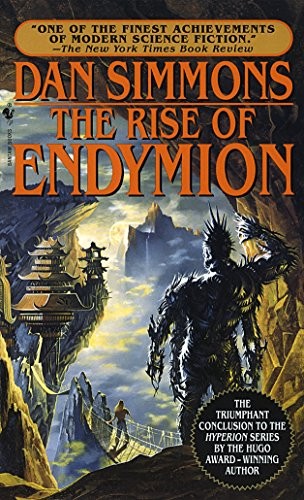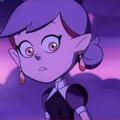Orlion reviewed The Rise of Endymion by Dan Simmons (The Hyperion Cantos, #4)
Review of 'The Rise of Endymion' on 'Goodreads'
3 stars
Well, I've done it. I ignored the warnings and read the Endymion duology. And I believe that I shall open this review with a scene from this book that I think sums things up nicely.
So Lenar Hoyt (or Pope Julius the umpteenth) dies and is placed in the resurrection creche. Due to the double cruciform, Paul Dure emerges, that's right, the much more relatable, cooler, awesomer Paul Dure from the Hyperion Cantos of yore. After a couple of lines, he is killed by one of Hoyt's henchmen so that the resurrection process can be repeated and yield Hoyt. sigh But now he'll be Pope Urban the something and he's ordained a Crusade against the Ousters and, and, yawn
And that sums it up nicely. There are a couple points where this series could have lived up to the high expectations set by the previous two books, where it could …
Well, I've done it. I ignored the warnings and read the Endymion duology. And I believe that I shall open this review with a scene from this book that I think sums things up nicely.
So Lenar Hoyt (or Pope Julius the umpteenth) dies and is placed in the resurrection creche. Due to the double cruciform, Paul Dure emerges, that's right, the much more relatable, cooler, awesomer Paul Dure from the Hyperion Cantos of yore. After a couple of lines, he is killed by one of Hoyt's henchmen so that the resurrection process can be repeated and yield Hoyt. sigh But now he'll be Pope Urban the something and he's ordained a Crusade against the Ousters and, and, yawn
And that sums it up nicely. There are a couple points where this series could have lived up to the high expectations set by the previous two books, where it could have been just as intriguing and been a legitimate sequel of sorts. But whenever this happens, Simmons' true purpose comes along, strangles that creative spark, and gives us instead a metaphysics centering around 'The Void Which Binds' and info dumps in the form of sermons by our 'messiah' Aenea that essentially explain whatever Simmons somehow can not place in text.
For all that, it is ultimately a satisfying, if somewhat contrived, ending. It is, however, wrong to call this part of the Hyperion Cantos, since really nothing of importance except the very beginning of Endymion happens on or with respect to Hyperion. Ultimately, the epic nature of the story is strangled so that we can get that all-important message, "Choose again," from the One Who Teaches. This is followed by the main character Raul trying to have a 'Sol moment' which fails at that, though it doesn't fall completely flat.
Other complaints? All the damn petty retconning. Using time travel as effectively as the 80s used 3-D, and for essentially the same cheap thrills.
Over all, though it is not by any means 'bad' science fiction, it is unfortunately a continuation of one of the greatest science fiction duologies of all time. This means that any one reading these two books (Endymion and The Rise of Endymion) are going to have high expectations, and unless they are impressed by pseudo-Buddisht metaphysics, there will be a sense that an opportunity was wasted.
So if you want to read this, go ahead. Just curb your expectations, and if nothing else, you'll have a fun read.


